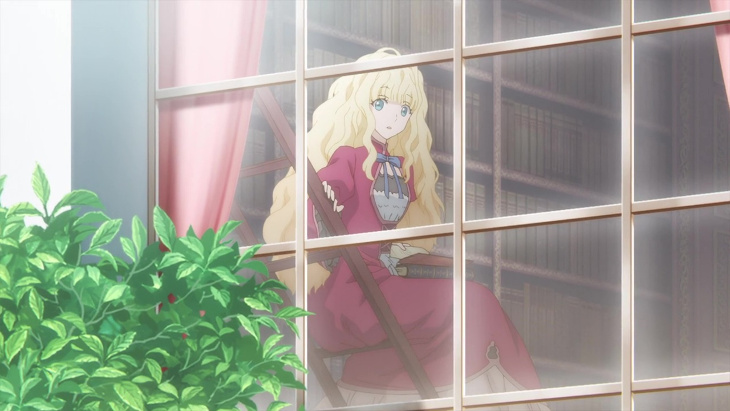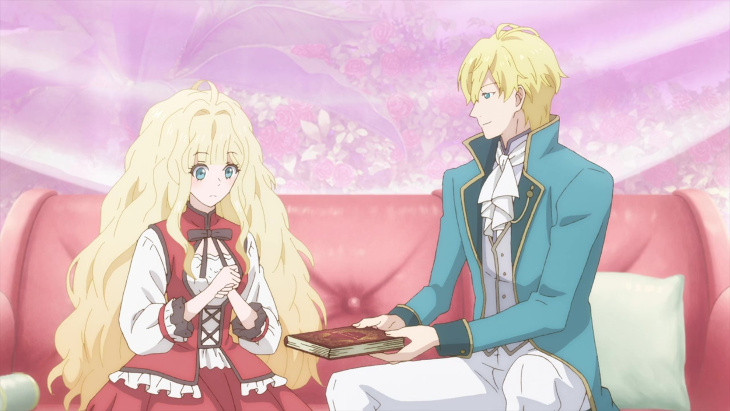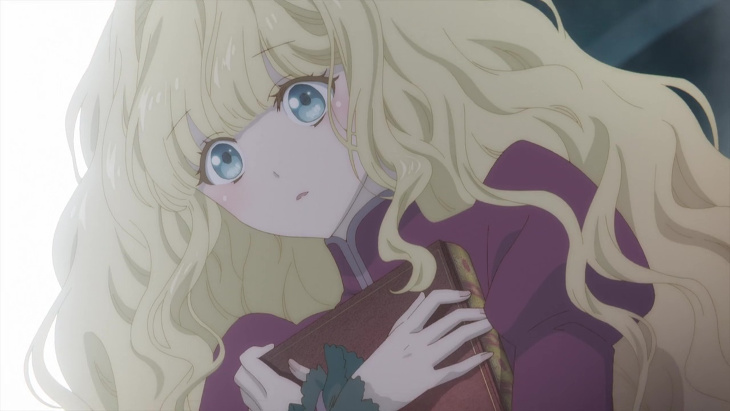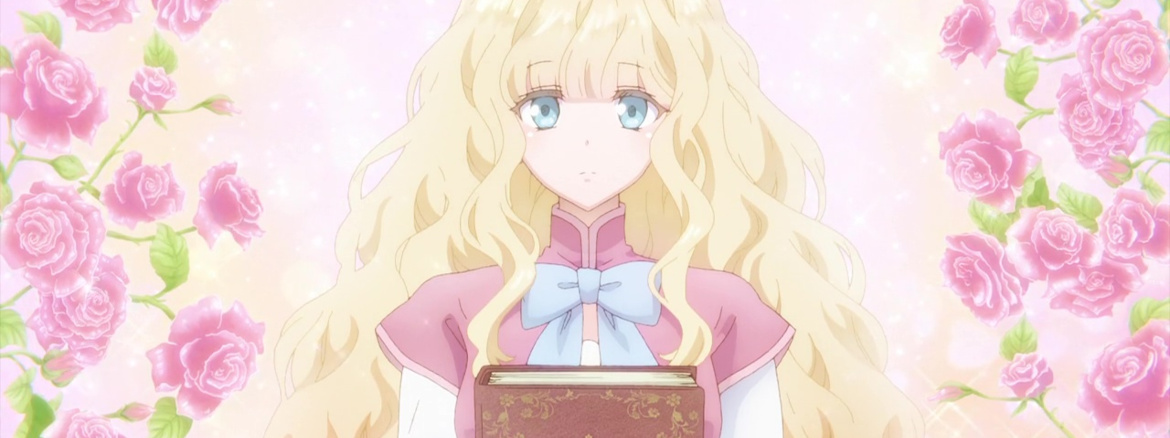
“If you have the status of my fiance, you’ll of course be free to visit the royal archives as you wish. You’re free to read and borrow them.”
I went into Bibliophile Princess with my only real knowledge being the implications of its title, but it proved to be a pleasant and refreshing surprise. It’s been a while since I’ve sat back and watched such a traditional shojo romance premiere. From its setting to its characters to its tone, every aspect of Bibliophile Princess feels like a throwback to the romances from two decades ago. That could be taken as me insulting the show for being stale or outdated, but I mean it as earnest praise for a premise and a story that could work in any time period. Sometimes you have the pleasure of stumbling blindly into something truly delightful, and Bibliophile Princess proved to be one of those times. While the pacing and flow of this first episode can be uneven, particularly in the second half, it doesn’t prevent this premiere from being a delightful watch. This is a moderate recommendation for anyone searching for a more straight-laced romance series than is common these days.

The story follows a minor noble named Elianna Bernstein, an avid reader who, at age fourteen, is provided with a peculiar proposal by the prince. The prince, Christopher, wants a fiancé who is politically neutral, and agreeing to an engagement of practicality will allow them to both focus on endeavors they’re more interested in. Christopher can turn his attention to learning to manage the kingdom, and Elianna will be permitted to read to her heart’s content and will gain access to the royal archives. This arrangement persists for several years, but as time passes, Elianna is gradually faced with the possibility of change. This leads her to reevaluate what aspects of their arrangement she truly values. Throughout this episode, I could never shake the feeling that this might be what My Next Life as a Villainess would look like if it was played straight and without the isekai elements. There are certainly more than a few similarities. Both series follow eccentric female nobles who find themselves engaged to princes with the belief that their engagement is little more than a sham. Also, in both instances, the blonde princes clearly have more earnest feelings than the lead realizes. The key factor that sets Elianna apart from Catarina is… frankly, Elianna isn’t an idiot. She may lack the ability to process social cues, but she seemingly has enough self-awareness to realize that she has feelings she hasn’t come to terms with. In spite of a strong premise and dynamic, the execution can come across as a little disjointed. It seems there may be events occurring in the background which we aren’t privy to, since we only follow Elianna during this introductory chapter. She notices things being off, but the dots haven’t been connected yet. This approach is a bit of a double edged sword. Looking back on it, I’m rather certain the odd combination of occurrences (a garden party getting ruined, Elianna’s guard being swapped out, her not being allowed access to the archives for several days, etc.) are connected and probably tied to a particular character. However, while viewing, even knowing there is likely some scheme at play, it all feels too nebulous to become properly engaged with that aspect.

Bibliophile Princess is a very pretty show, and it has Madhouse to thank for that. Madhouse turning in a polished product isn’t surprising, but given that I wasn’t aware they were the production studio on this until around the midpoint, it was a little startling. When I referred to this show as being “traditional shojo” I was speaking in regard to both the non-comedic, unironic tone and the aesthetics of the animation. I was honestly startled to learn that the source material was a light novel released during the course of the last seven years. Madhouse captures the composition of those older works deftly, while adding a crisp level of modern production quality. There are at least some mild nitpicks. It’s only for a couple of seconds, but there is some shockingly janky horse animation at one point in this episode. It was during a pulled out shot around the 12 minute mark, and I immediately paused to rewatch it several times. There were a couple of pulled back shots where I found the animation to be a little stiff, but that was the most pronounced example.
Before I wrap up, a few Notes and Nitpicks:
- The opening prominently proclaims the English title to be “Princess of the Bibliophile,” which could definitely use a revision. Sometimes an iffy translation can sound cool or intriguing, like Attack on Titan, but this isn’t one of those instances. I wonder if this series is associated with the “Princess of the Bibliophile” title in Japan, because otherwise, it’s odd that they wouldn’t have corrected the title during the adaptation process (or at least made it less prominent).
- I started to complain that some of the visuals were difficult to focus on, but then I moved the show to a different monitor and realized that the issue was probably the contrast settings on my screen. I don’t think I’ve had that issue before, but then again, my support monitor is a recent addition to my office space, and this show features a rather bright palette.
- Character-wise, the show hasn’t taken the time to really establish anyone yet. Elianna and Christopher are the only ones with enough screen time to leave much of an impression, and Elianna is too withdrawn for her personality to be fully defined for the viewer at this point.
- One of these days, I’m going to review a romance series without referencing My Next Life as a Villainess. I might need to get isekai-ed before that happens, but it will happen!




Add comment